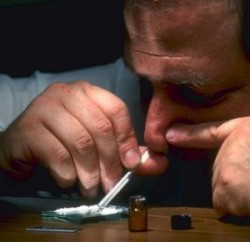
Various options exist for amphetamine addiction treatment to help those who become hopelessly addicted to amphetamines either as a result of taking the drugs for recreational purposes of after taking amphetamines as prescribed. The method of amphetamine addiction treatment that works best for you may depend on various factors including your level of addiction, the type of amphetamine that is being used, the initial circumstances that led to the addiction and various other factors.
Most often, the options that are available include:
- Inpatient amphetamine addiction treatment
- Outpatient amphetamine addiction treatment
- Dual diagnosis amphetamine addiction treatment
Inpatient Treatment

You do have amphetamine addiction treatment options!
The most heavily supervised, safest method of treatment for amphetamine addiction is residential or inpatient treatment. Amphetamine addiction can cause various levels of physical and psychological dependence which, when the drug is not used, can lead to withdrawal symptoms that may be potentially dangerous to the user. Inpatient amphetamine addiction treatment provides the user with a safe, secure environment where counseling, support and medical care can be received ensuring the safety of the patient during treatment.
Outpatient Treatment
For those who are mildly addicted to amphetamines and do not suffer from extreme withdrawal symptoms when they stop taking amphetamines, outpatient treatment can be a helpful option for recovery. This method of treatment provides patients with counseling and support as well as very limited medical care as needed to help them overcome amphetamine addiction. During outpatient amphetamine addiction treatment, the user will receive adequate counseling and support during regular business hours but will return home to continue to work toward their recovery goals after hours.
Dual Diagnosis Treatment
Because many people who become addicted to amphetamines suffer from another physical or mental health condition that caused their drug use, dual diagnosis treatment is a very common option of care for addicts. This method of treatment focuses on providing effective, quality care for both the amphetamine addiction AND the co-occurring condition whether it’s a mental or physical health problem.
Dual diagnosis treatment may include medications, therapy and counseling for both the amphetamine addiction and another disorder. Sometimes, the amphetamine addiction is the result of an underlying mental health disorder such as ADHD or a similar condition, other times, the addiction can lead to anxiety and depression. All of these elements can be effectively treated in a dual diagnosis treatment program that focuses on providing quality care for amphetamine addicts.
If you or a loved one is suffering from amphetamine addiction and in need of help, call 800-816-1059(Who Answers?) today and take your first steps toward recovery.


